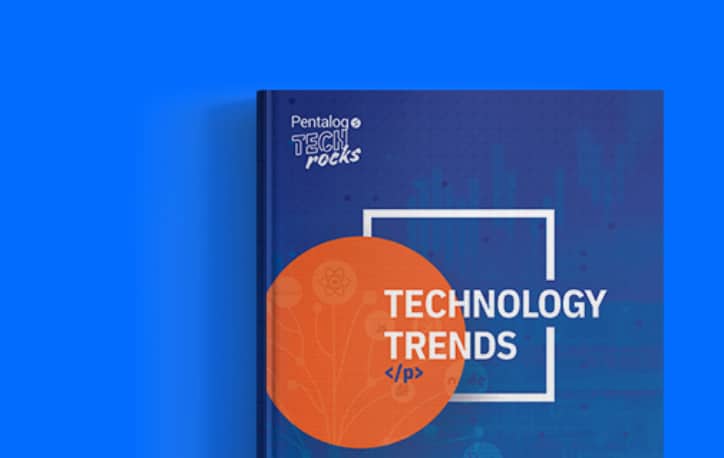In the contemporary fast-paced technological environment, the success of every business relies on a data-driven model. However, it is not an easy task to achieve as you need to have a comprehensive data management strategy in order to become a data-driven organization. The proactive management of large volumes of data and identification of the relationship between data can be an extremely tricky process, especially for large enterprises.
Therefore, incorporating an efficient data management tool like data matching has become absolutely essential. Using data matching, the financial institutions can handle the complex data and process them in a matter of seconds, which is a cost-efficient and reliable way to manage your data.
What is Data Matching?
Data matching, also known as record linkage, is a modern technique where through the process of linking records, all matching keywords are identified in the blink of an eye. In simpler terms, it identifies duplicates, or potential duplications, and combine two similar or identical entries into one. It also helps you to distinguish non-duplicate records, which can be just as important to identify, as being similar does not always mean that two things are same.
Tech giants like Google also use data matching in their search engines. Once you type a certain keyword, you are being shown all the results relevant to that particular keyword. However, unlike the search engines, data matching in financial organizations require more accurate and precise results.
Using record linkage, the data matching identifies and match records across multiple larger database. Besides just being a record management tool, data matching is heavily used for data validation across large databases. Though keep in mind that the process of data matching is heavily dependent on the quality of the data, therefore, the standardized data will always result in a more consistent and accurate result.
How does data matching play a role in the financial world?
The amount of data consumption in the financial institutions is off the charts. They deal with the extensive quantity of data to conduct analytics. The digitalization of data presents a great opportunity for financial institutions to gain comprehensive insights about the customers, but it also presents a variety of challenges that must be addressed by the financial institutions.
The reputation and effectiveness of data matching in numerous applications like healthcare, customer identification, and recordkeeping, has led to the development of several data matching products in the market.
However, developing algorithms for such an exceptional technology requires a high level of expertise. These algorithms used in this software are the foundation of this software. It is very important to understand that all data matching software is not equally efficient.
The market has been flooded with numerous subpar products due to the amplified demand for data matching software, leading to inaccurate results, which can have a very detrimental effect on decision making. Therefore, it is vital that you conduct a broad research of data matching tool so you get the high quality and efficient product for your organization.
The impact of data matching on the financial world
Due to operational, strategic and compliance reasons, financial institutions such as banks, audit firms, and insurance companies collect a massive amount of customer information. This information comes from several different channels, therefore, the data often contain inaccuracies, duplications and incomplete records that can result in incorrect analysis, leading to ill-informed decisions, which can be detrimental for these financial institutions.
Data matching can provide a holistic view of your customers by linking data across all the channels using the intelligent algorithm. This enables the organizations to remove duplications and find connections between data elements, regardless of input errors, missing characters, or other inconsistent variations in their data.
Banking
The data matching has a wide application in the banking sector. A typical bank includes many functions like operations, treasury, capital markets and accounting, to name a few. They need to perform comprehensive reconciliation among these functions on a regular basis. Moreover, there are millions of real-time transactions generated by different channels, which has to be timely recorded, processed and analyzed.
The data matching can help speed up these transactions by removing duplicates and streamlining the data sets. It automates the tedious job of data sorting, so the valuable time can be focused on more strategical operations rather than data crunching. This increased quality data in a centralized database facilitates faster and much more accurate processing of the data.
Insurance sector
Similarly, the insurance companies also have a huge database of their customers. They usually contain their personal information, medical records, and financial information, which are derived from various sources.
In order to maintain efficient operations, the database must stay accurately updated on a real-time basis. Having duplicate files and incorrect records can result in adverse consequences for them. In addition to data cleansing, it also allows them to search the required information much faster.
Using data matching techniques, they can minimize the duplications of records and link the information of their users, so the risk of these mistakes are reduced to an acceptable level. This is very critical as insurance market is very competitive and few bad decisions can ruin the reputation of the company and expose them to legal actions.
Other financial institutions
There are many other financial institutions like Credit Unions, Brokerage Firms, Mortgage Companies, etc., who can benefit from the data matching as they all have to maintain a database containing an abundance of information. Moreover, they also need to share the information among various sections. The data matching enables a greater degree of accuracy while keeping irrelevant and repetitive information to a minimum.
In conclusion, data matching is already being used in financial institutions and large enterprises. Many organizations lose millions of dollars just because of poor data matching. Poorly matched data leads to poor decision-making processes which can cost organizations significantly both monetarily and in terms of reputation. Using high-end data matching software can not only help organizations to improve their decision-making processes but also streamline their business operations in a cost-effective and efficient manner.










































